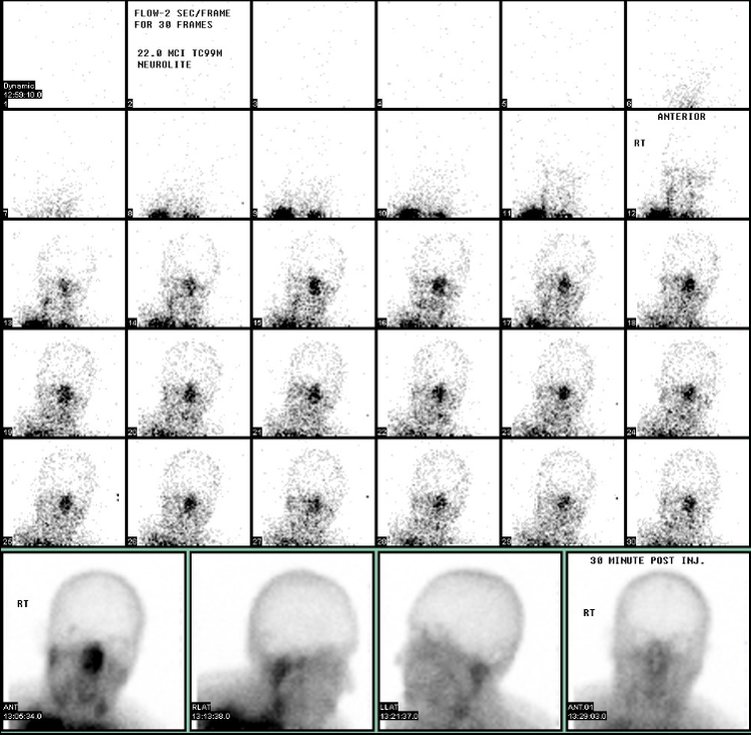
Brain death
Brain death is the permanent, irreversible, and complete loss of brain function, which may include cessation of involuntary activity necessary to sustain life.[1][2][3][4] It differs from persistent vegetative state, in which the person is alive and some autonomic functions remain.[5] It is also distinct from comas as long as some brain and bodily activity and function remain, and it is also not the same as the condition locked-in syndrome. A differential diagnosis can medically distinguish these differing conditions.
For the EP by Nuclear Assault, see Brain Death (EP).Brain death
Brain stem death
Stimulation testing, EEG, pupil reactivity test
Artificial life support
None; brain death is irreversible
Rare
15,000 to 20,000
Brain death is used as an indicator of legal death in many jurisdictions,[6] but it is defined inconsistently and often confused by the public.[7] Various parts of the brain may keep functioning when others do not anymore, and the term "brain death" has been used to refer to various combinations. For example, although one major medical dictionary considers "brain death" to be synonymous with "cerebral death" (death of the cerebrum),[8] the US National Library of Medicine Medical Subject Headings (MeSH) system defines brain death as including the brainstem. The distinctions are medically significant because, for example, in someone with a dead cerebrum but a living brainstem, spontaneous breathing may continue unaided, whereas in whole-brain death (which includes brainstem death), only life support equipment would maintain ventilation. In certain countries, patients classified as brain-dead may legally have their organs surgically removed for organ donation.
Demographics[edit]
United States[edit]
Brain death is responsible for 2% of all adult and 5% of pediatric in-hospital deaths in the United States.[33] In a nationwide survey of pediatric intensive care units (PICU) in the United States in 2019; there were more than 3,000 pediatric brain deaths out of a total of more than 15,344 children who died in PICUs. According to a national study, "brain death evaluations are performed infrequently, even in large PICUs."[34]